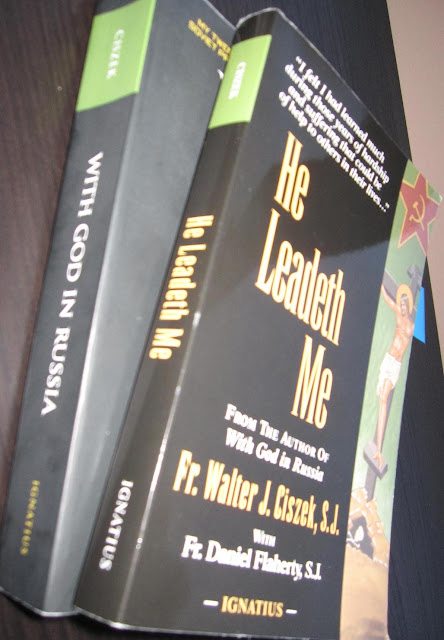“And I learned soon enough that prayer does not take away bodily pain or mental anguish. Nevertheless, it does provide a certain moral strength to bear the burden patiently. Certainly, it was prayer that helped me through every crisis.
Gradually, too, I learned to
purify my prayer and remove from it the elements of self-seeking. I learned to
pray for my interrogators, not so they would see things my way or come to the
truth so that my ordeal would end, but because they, too, were children of God
and human beings in need of his blessing and his daily grace. I learned to stop
asking for more bread for myself, and instead to offer up my sufferings, the
pains of hunger that I felt, for the many others in the world and in Russia at
that time who were enduring similar agony and even greater suffering. I tried
very hard not to worry about what tomorrow would bring, what I should eat, or
what I should wear, but rather to seek the kingdom of God and his justice, his
will for me and for all mankind.
"Thy will be done." That
was the key, but only slowly did I come to experience how perfect a prayer is
the Our Father, the Lord's Prayer. "Lord, teach us how to pray", the
disciples had said, and in his answer, the Lord had explained the whole theology
of prayer in the most simple terms, exhaustive in its content, and yet intended
for the use of all men without distinction. The human mind could not elaborate
a better pattern in prayer than the one the Lord himself gave us.
He begins by placing us in the
presence of God. God the almighty, who has created all things out of
nothingness and keeps them in existence lest they return to nothingness, who
rules all things and governs all things in the heavens and on earth according
to the designs of his own providence. And yet this same all-powerful God is our
Father, who cherishes us and looks after us as his sons, who provides for us in
his own loving kindness, guides us in his wisdom, who watches over us daily to
shelter us from harm, to provide us food, to receive us back with open arms
when we, like the prodigal, have wasted our inheritance. Even as a father
guards his children, he guards us from evil--because evil does exist in the
world..."
From Walter J. Ciszek's book, He Leadeth me


